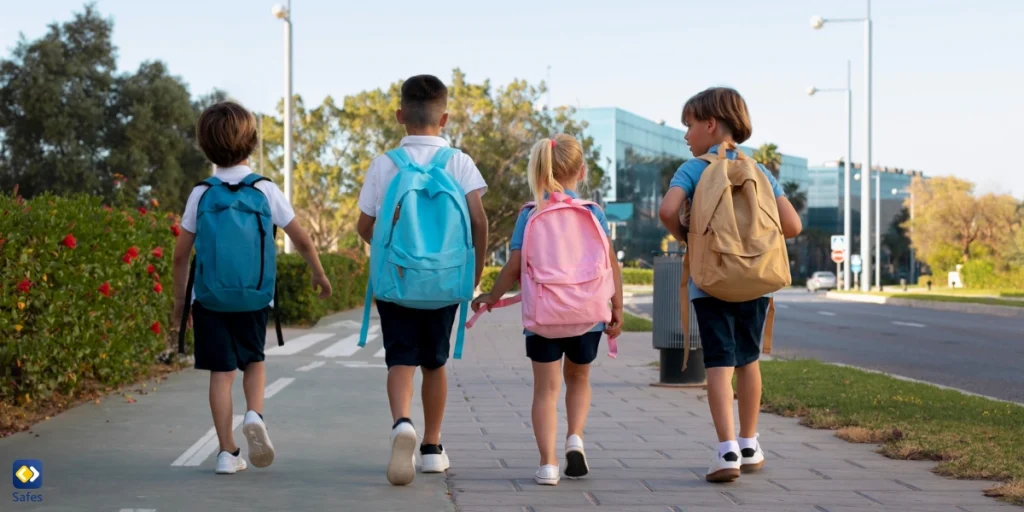The first day of school is both exciting and terrifying for both parents and children. It is critical that your child be emotionally prepared as they embark on this new learning and socialization experience. A strong emotional foundation eases the transition and establishes a favorable attitude toward education. Many teachers even have specific programs in place for the first few days in school. We’ll go through some practical ways for psychologically preparing your child for the first day of school in this blog article.
Download and Start Your Free Trial of the Safes Parental Control App
Open Communication
For both parents and children, the first day of school is an exhilarating and nerve-racking occasion. Your child must be emotionally prepared as they embark on this new learning and socializing experience. A solid emotional foundation eases the transition and establishes a positive attitude toward education. We’ll go through some practical techniques to psychologically prepare your child for the first day of school in this blog post.
Visit the School
If possible, bring your child to school before the first day. Show them around the school, showing them the classrooms, play areas, and other facilities. Familiarity can reduce their dread of the unknown and make the school environment look less intimidating.
Establish a Routine
Adjust your child’s routine gradually before the start of school to meet the school schedule. Adequate sleep, regular meals, and designated play and study times can all help children adjust to the new school schedule.
Share Positive Stories
Share your own positive school experiences with your child. Highlight the fun moments, new relationships made, and lessons learned. This can instill a sense of enthusiasm and expectancy in them, making them more receptive to the idea of school.
Practice Separation
If your child has never been separated from you for an extended period of time, experimenting with brief separations is a good idea. Make playdates or visits to friends’ houses so they may spend time apart from you. This can assist children in adjusting to the idea of being apart and developing their independence.
Read Books About School
There are several children’s novels about starting school. Reading these stories with your child may expose them to actual people and situations, helping them to express their feelings and worries.
Prepare Together
Take part in the planning for your child’s first day of school. Allow them to choose their own school supplies, luggage, and outfit. This level of involvement may make individuals feel more empowered and in command of the situation.
Acknowledge Their Feelings
It is natural for your youngster to feel a variety of emotions, including excitement, fear, and even dread. Recognize and validate their feelings. Tell them it’s fine to feel this way and that you’re here to help.
Build Social Skills
Talk to your child about making friends and practicing good social skills. Teach them how to introduce themselves, share, and engage in conversations. These skills can boost their confidence in approaching new people.
Be Positive and Encouraging
Your attitude sets the tone for your child’s emotions. Stay positive and enthusiastic about school. Express your confidence in their ability to adapt and make the most of their learning experience.
Conclusion
The first day of school is a significant event in your child’s life, and emotional preparation is essential for a successful transition. You may help your child face the first day of school with delight and confidence by promoting open communication, familiarity, and independence. Remember that each child is an individual, so tailor your approach to their personality and needs. With your guidance and supervision, your child may welcome this new experience with a positive attitude and a readiness to explore the world of learning and connections.




